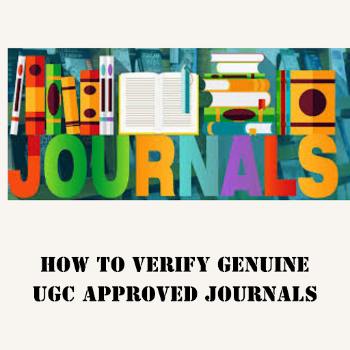How to Verify Genuine UGC Approved Journals
1. Introduction: Why UGC Approved Journals Matter
UGC Approved Journals play a key role in academic publishing. The University Grants Commission (UGC) only accepts articles from these journals, ensuring that your work meets established academic standards. The UGC CARE List, updated every three months, replaced the older Approved Journals list. Therefore, always verify a journal’s status before submission to maintain your research’s credibility.
2. What is the UGC CARE List?
UGC established the Consortium for Academic and Research Ethics (CARE) to encourage high-quality research. The CARE List includes only reliable and reputable journals, ensuring that researchers publish in trustworthy outlets. By checking this list, you protect the integrity of your research and contribute to academic excellence.
3. Why Was the CARE List Created?
The CARE List aims to:
- Promote Quality Research: It fosters academic integrity and supports high-standard research.
- Avoid Low-Quality Publications: It prevents researchers from publishing in unreliable, predatory journals.
- Provide a Trusted Reference: It serves as a reliable guide to reputable journals.
- Identify Top Journals: It helps researchers find well-regarded journals for publication.
4. Organizing the UGC CARE List
The UGC CARE List divides journals into two groups:
- Group I: Journals that comply with UGC-CARE protocols.
- Group II: Journals indexed in global databases like Scopus or Web of Science.
UGC thoroughly reviews journals submitted by universities and councils. Always ensure that the journal you choose adheres to these standards for the best academic outcomes.
5. Key Reasons UGC Created the CARE List
UGC established the CARE List to:
- Promote Academic Integrity: It encourages ethical publishing and research practices.
- Enhance Global Recognition: Publishing in reputable journals boosts global academic rankings.
- Safeguard Academic Reputation: It helps researchers avoid unreliable journals, preserving their professional credibility.
- Provide a Consistent Resource: UGC ensures a reliable list for all researchers to consult.
6. Beware of Cloned Journals
UGC CARE regularly receives complaints about cloned journals that do not follow publishing standards. After careful review, UGC removes these journals from the approved list, making articles published in them invalid for academic use. To avoid this risk, always verify the journal before submission.
- How to Identify Cloned Journals
- Fraudulent journals often replicate legitimate ones by copying titles, ISSNs, and logos. Stay vigilant by checking the Cloned List of Group I and Group II Journals to avoid these deceptive outlets.
7. How to Check if a Journal is Genuine
Follow these steps to verify a journal’s authenticity:
- Visit the UGC CARE Website: The official UGC CARE List Portal provides updated information.
- Search for the Journal: Use the journal’s ISSN, title, or publisher to locate it. Make sure it appears under Group I or Group II.
- Verify Cloned Journals: Fraudulent journals often copy details from legitimate ones. Check the Cloned Journals List to avoid these.
- Check Indexing: Journals in Group II should be indexed in Scopus or Web of Science. Verify this on their official websites.
- Assess the Journal’s Quality: Ensure it follows ethical standards, has a reputable editorial board, and conducts proper peer review. Avoid journals with excessive fees and no thorough review process.
8. Conclusion: Ensuring Your Research Stays Credible
By following these steps, you can confidently choose a UGC-approved journal and avoid publishing in unreliable outlets. Always prioritize journals that meet UGC standards, and you will enhance the impact and credibility of your academic work.
8. Source Links

